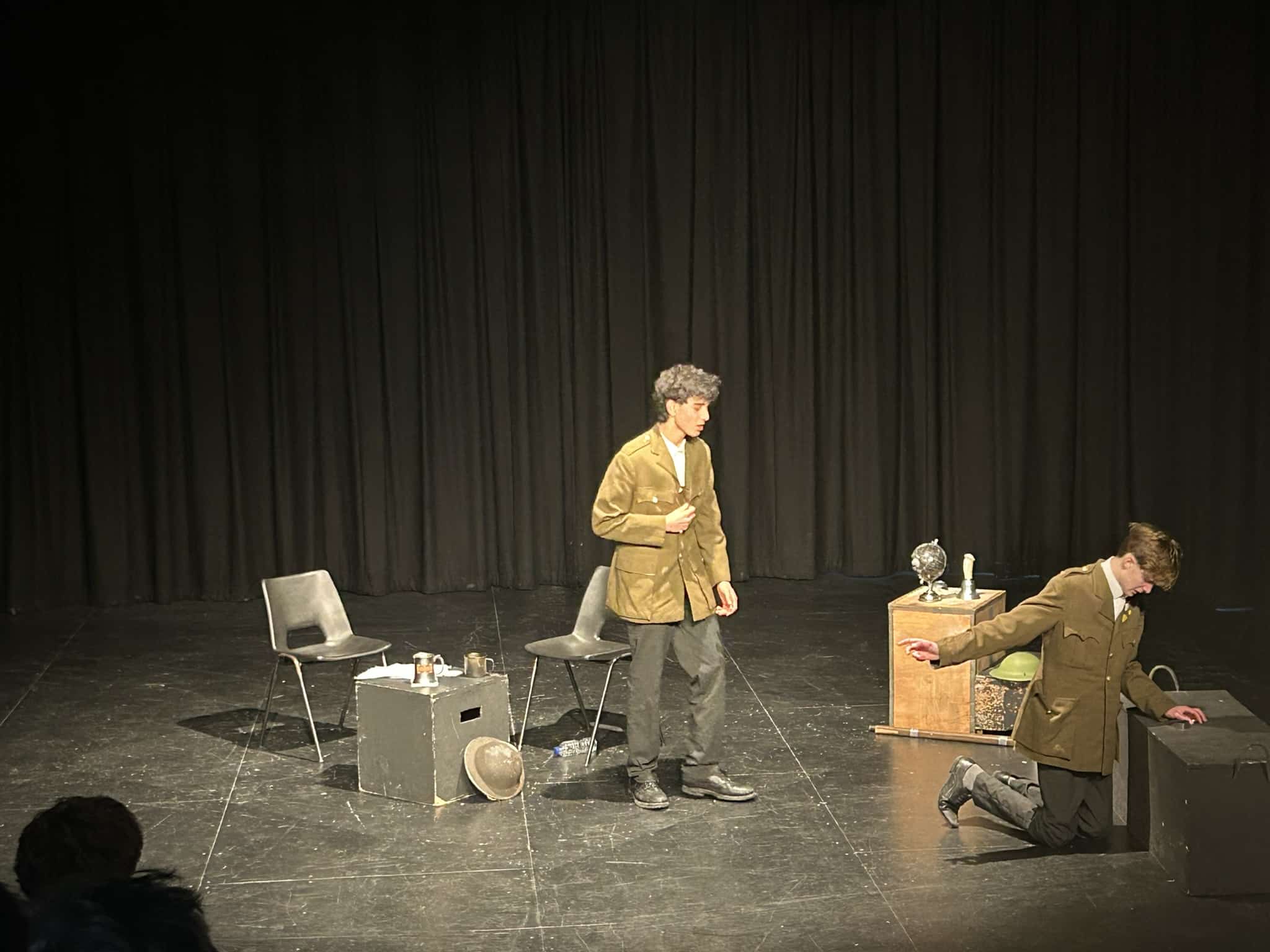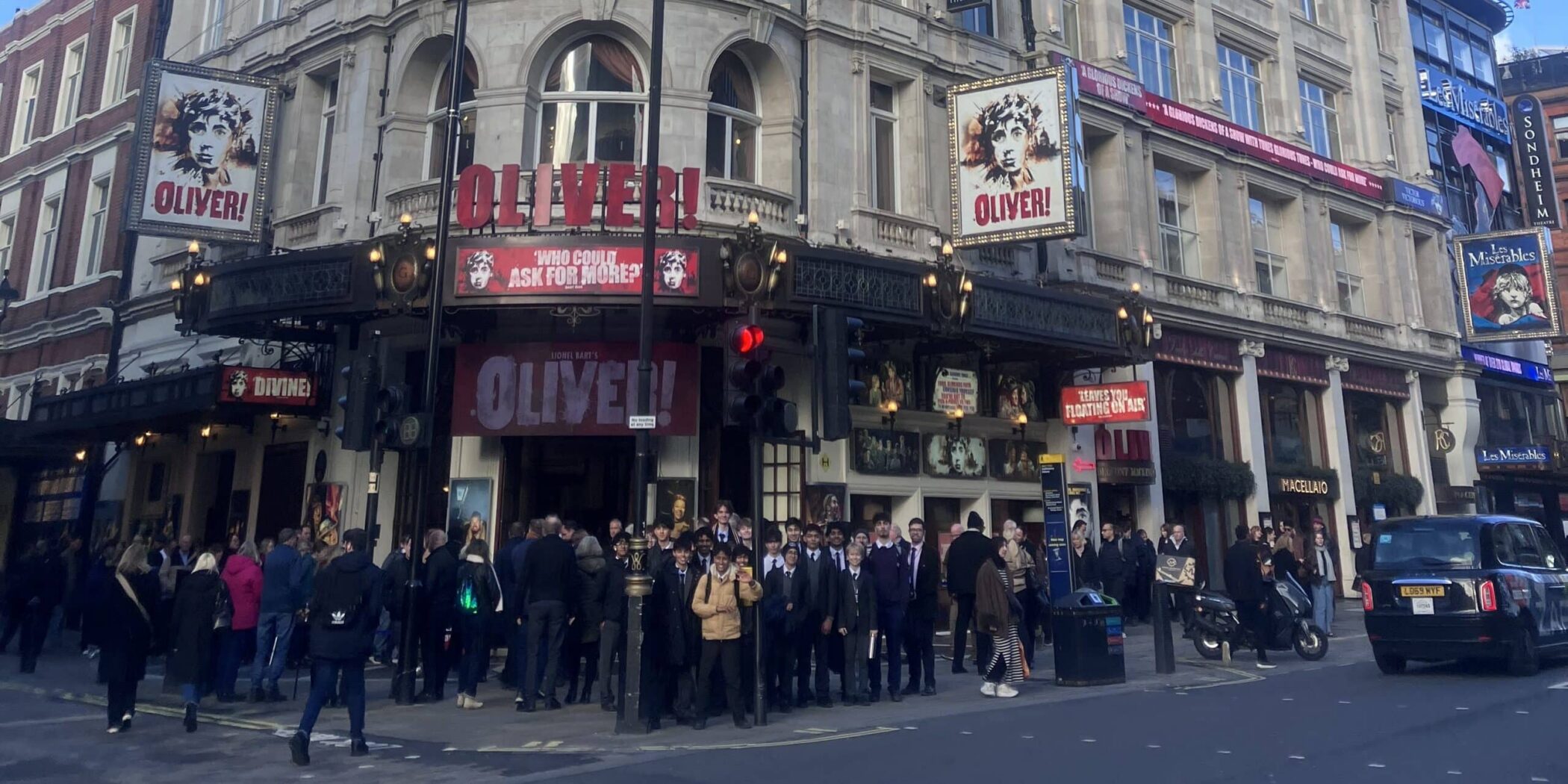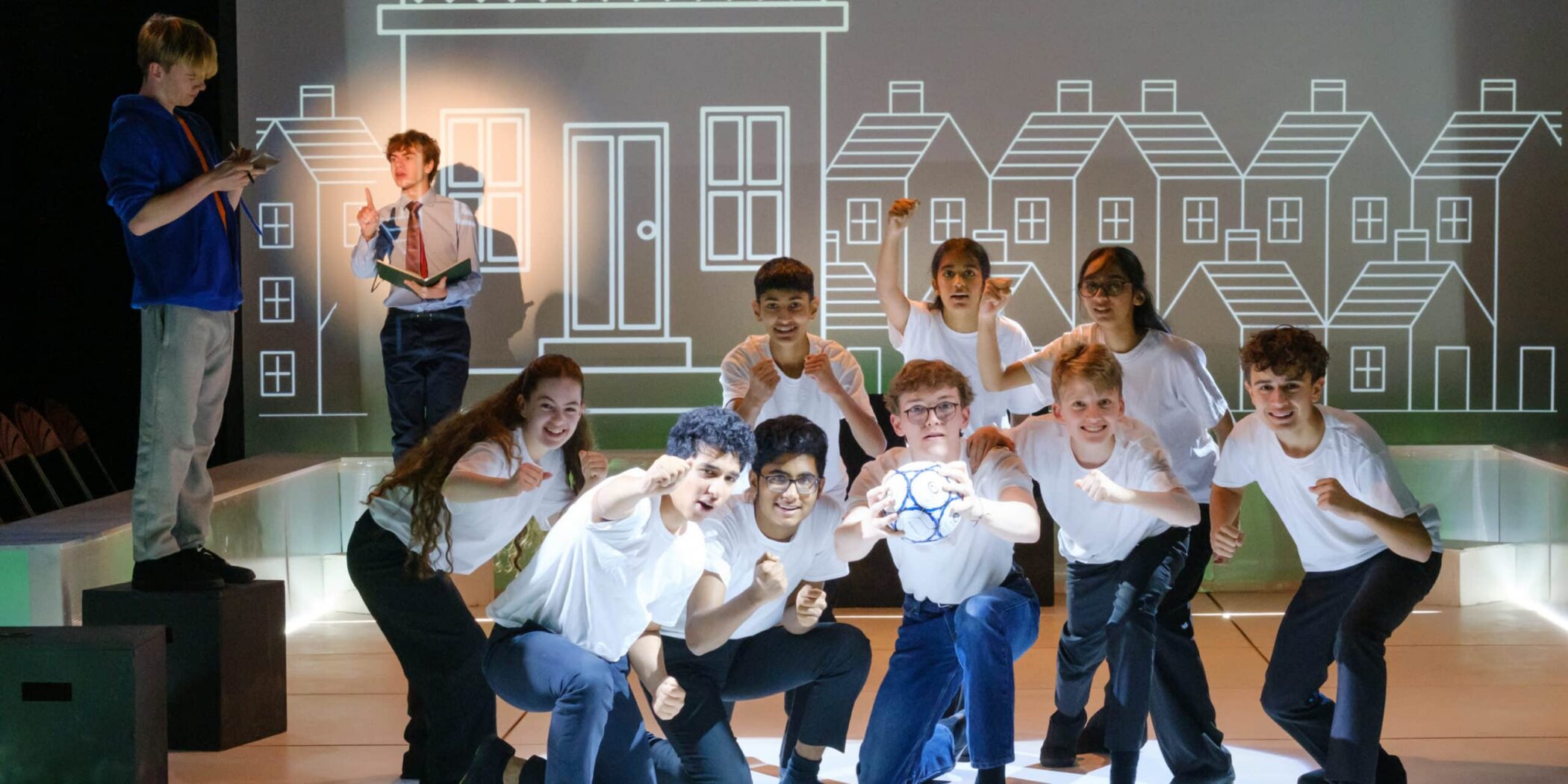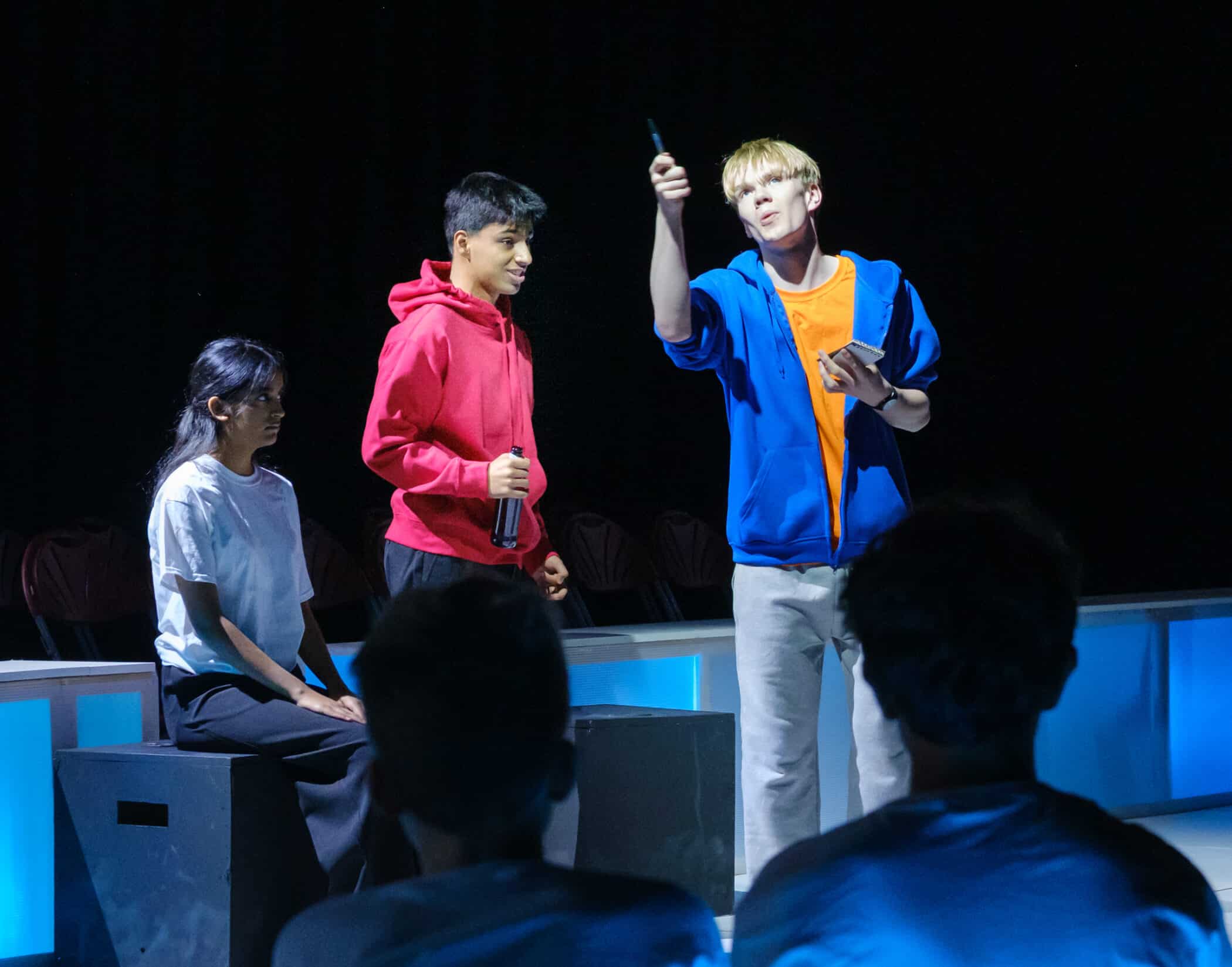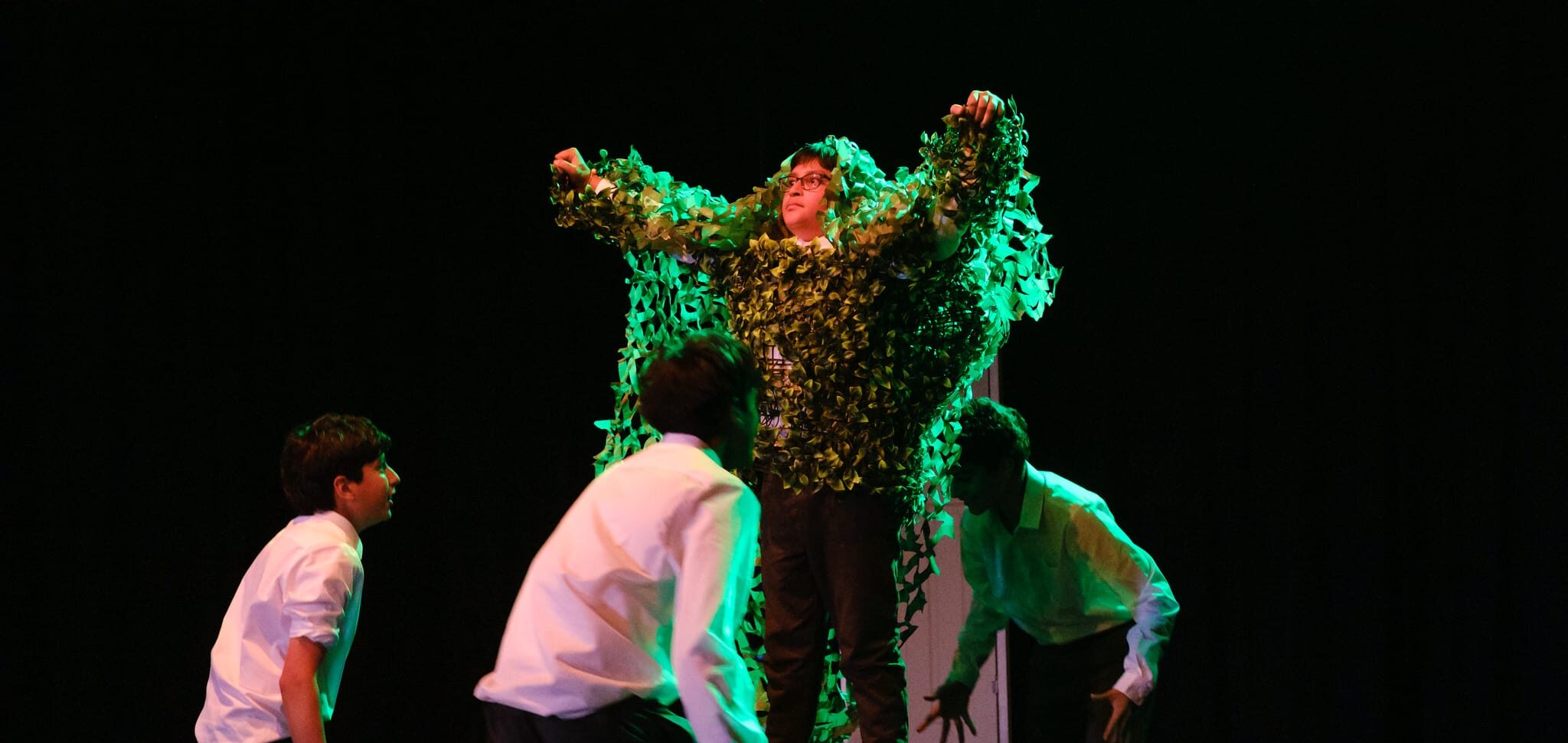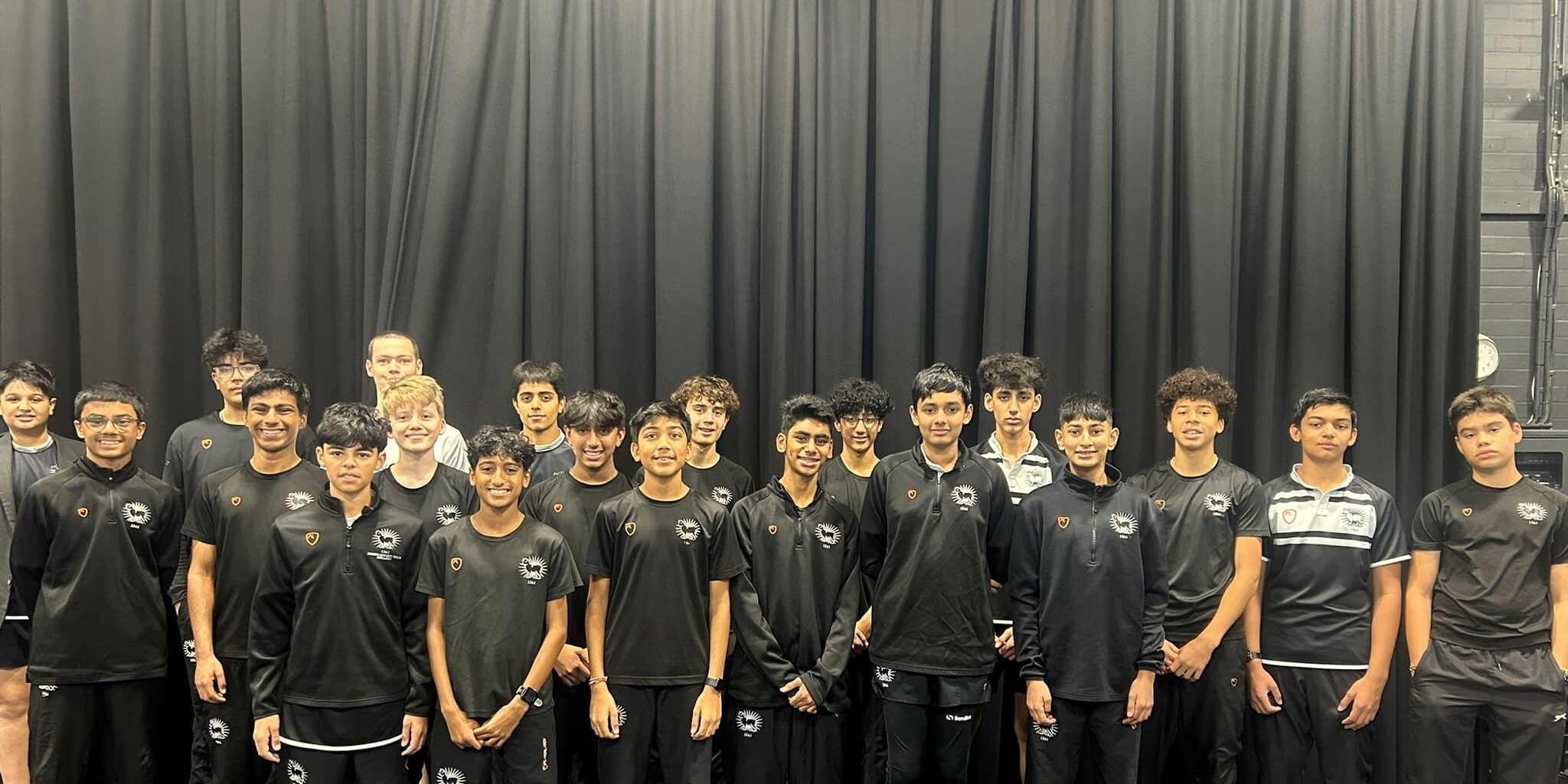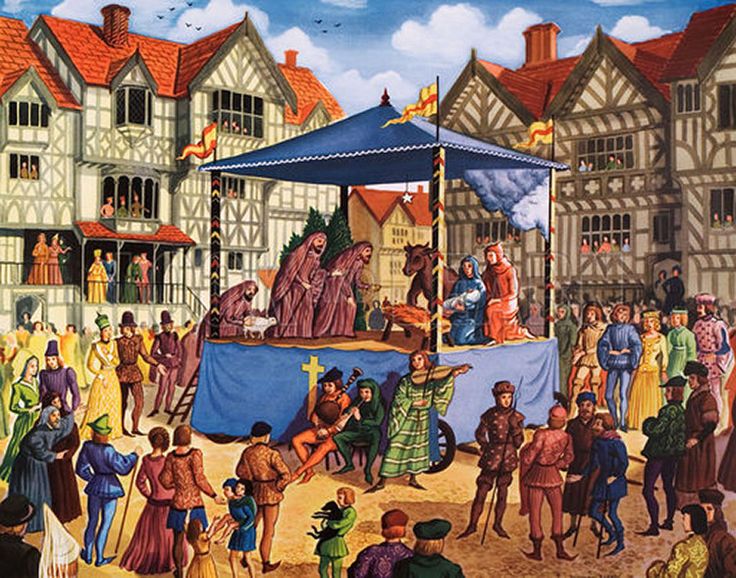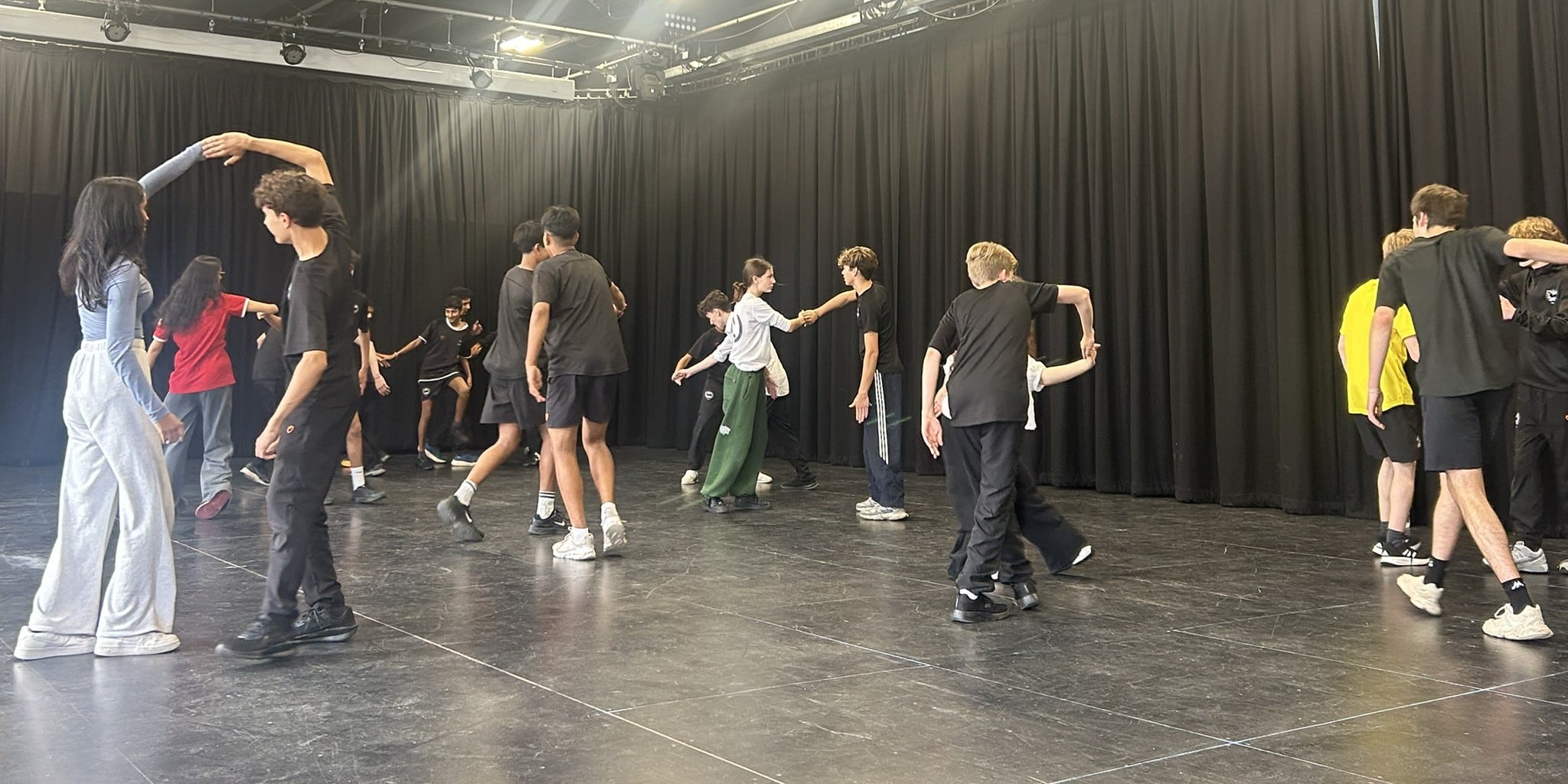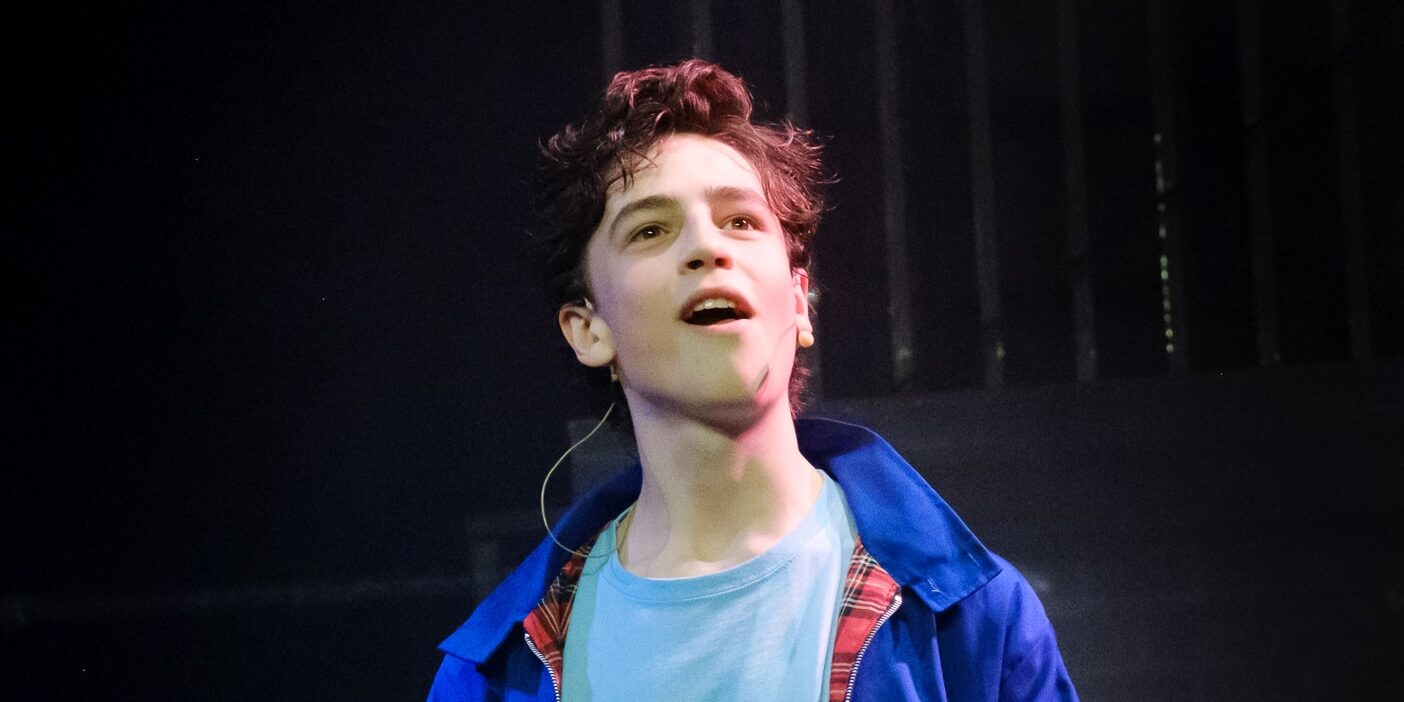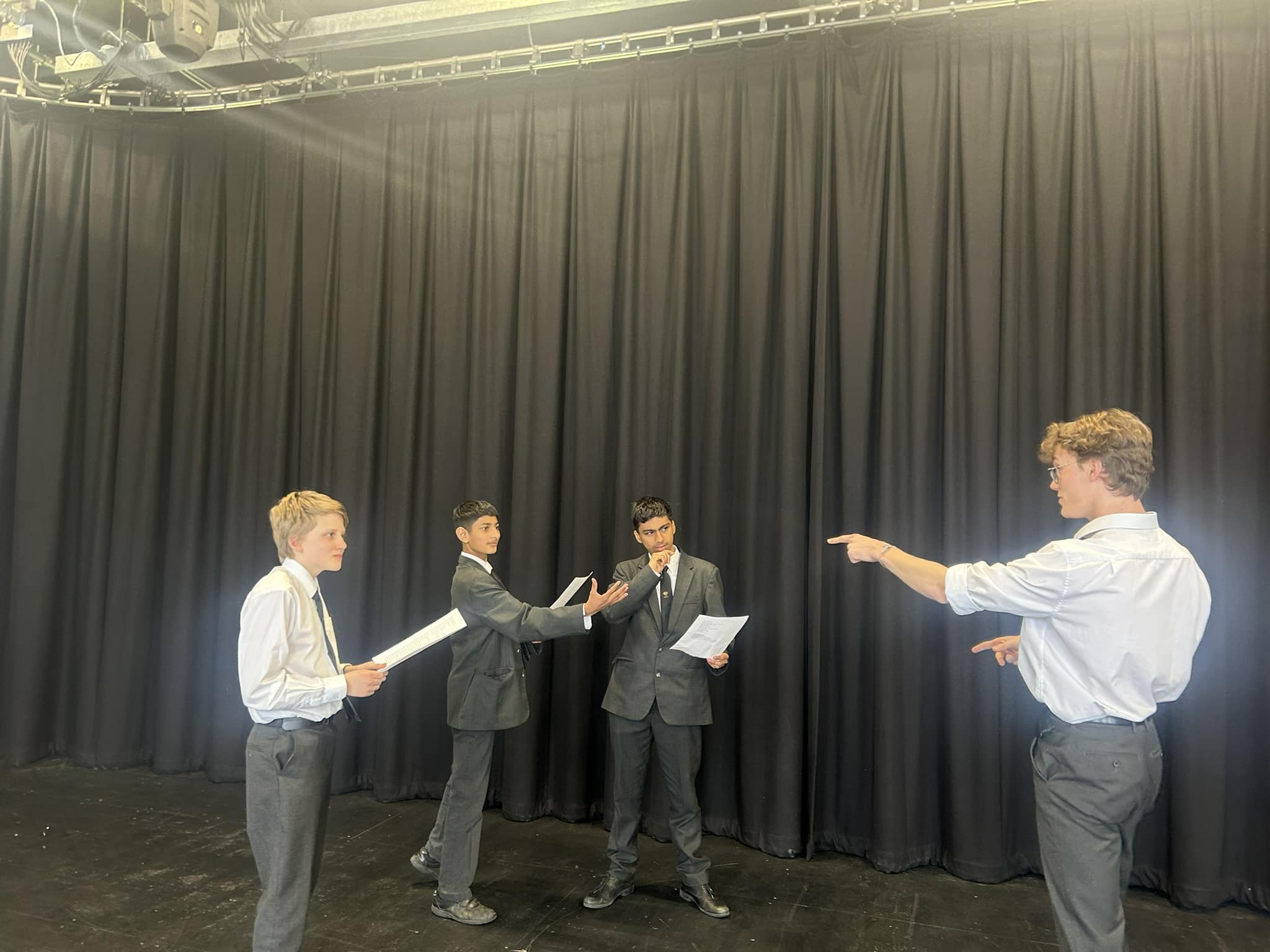It may have been a few days shy of the Summer Solstice, but it was a Merchant Taylors’ Midsummer on Tuesday 17th June. On what felt like a Grecian evening, a generous audience gathered in front of the yew trees in the Head Master’s garden, their tapering tops bearing an uncanny resemblance to Bottom’s famous donkey ears. Unfolding across rugs and picnic chairs, tinkling to the sound of soirée glasses, the atmosphere could have been mistaken for the high season of Glyndebourne. Everyone was in for a treat.
Right from the start, the magic and merriment came in all shapes and sizes, some intentional… some unexpected. There were moments when you had to pinch yourself: here was the entire Third Form, some strutting the stage for the first time, let alone performing to a live audience in an outdoor theatre, delivering lines of Shakespeare – rich with meaning – and as they had been originally intended: to entertain! Quarrelling lovers, an impulsive Theseus and his reluctant bride, Hippolyta, feuding Fairy royalty in Oberon and Titania, a mischievous and error-prone Puck, a host of flitting fairies and a group of rude mechanicals of swaggering theatrical ineptitude – all were triumphantly rendered by our brave band of boys.
The musicians at the back, an ensemble of clarinet, violin, vibraphone and tabla drums brought an added dimension of mystery and wonder to proceedings.
My sincere thanks to the English Department for the tremendous effort that goes into this production every year. In under two weeks of lessons, teachers take a class from opening the play script for the first time to live performance: a remarkable achievement. Thank you as well to a host of others who made the production possible: the ground staff, the catering team, the school office, and those teachers who gave of their time for face-painting Third Formers into fairies. My greatest thanks, however, is reserved for every single boy in the Third Form who put in so much effort, a great deal of which no doubt unseen, into making this show what it was. They had to put up with the exhortations of their teachers during dress rehearsals, and it was ultimately they who performed the great trick of theatre, transforming themselves from schoolboys into utterly believable characters in a play. Our great hope is that they will take this experience with them, and when they next come across Shakespeare have an appreciation for where the joy in his plays really lies. They will have discovered something about theatre and about themselves, which I will hope they will carry with them long after Puck has swept the dust from behind the door.
Mr M. G. Hilton-Dennis
Head of English



